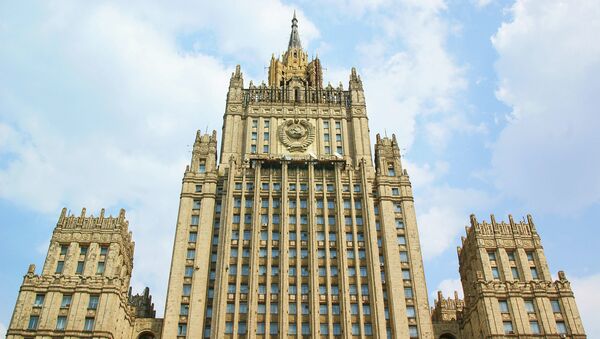MOSCOW, May 24 (RIA Novosti) - The Russian Foreign Ministry has admitted that recent statements by Vladimir Andreyev, the Russian consul general in Simferopol, Ukraine’s Crimea, about Crimean Tatars were inappropriate.
Moscow “understands [Ukraine’s] reaction to certain… incorrect wordings used by the Russian representative without proper account for the sensitive issue demanding… a weighted approach,” the Russian Foreign Ministry said in a statement on Thursday.
In a recent TV interview, Andreyev accused Crimean Tatars of collaborating with Nazi Germany during World War II. He criticized a movie about the 1944 deportation of Crimean Tatars to Central Asia by Soviet dictator Josef Stalin, saying the film does not mention the alleged collaboration.
A senior official of the Russian Embassy in Ukraine was on Wednesday summoned to the Ukrainian Foreign Ministry over the incident that Kiev said insulted Crimean Tatars. The Ukrainian ministry said it hoped the Russian ministry would “properly assess” the consul general’s statements.
About 300 people, mostly Crimean Tatars, were rallying outside the Russian Consulate in Simferopol on Thursday, demanding that Andreyev be stripped of diplomatic status and declared persona non grata.
The Russian Foreign Ministry also said bilateral relations were based on “spiritual unity and deep mutual understanding, and praised those Crimean Tatars who during the Second World War “were forging our common Victory.”
The Ukrainian Foreign Ministry earlier said it was concerned by Andreyev’s “inappropriate remarks.” Andreyev replied that he stood by his opinion and would not retract his words, adding that he was not questioning the wrongfulness of the deportation of Crimean Tatars by the Soviet leadership.
One of the main heroes of the film in question, titled Haytarma, is Amet-Khan Sultan, a Soviet fighter and test pilot with Crimean Tatar roots who was twice decorated as Hero of the Soviet Union. The film’s director and producers invited Russian pilots trained by Sultan to attend the premiere of the movie, but most of them were absent after Andreyev advised them not to attend.
About 190,000 people - almost all the Tatar population - were deported from the Crimea, then part of the Soviet Union, in 1944 as punishment for the alleged collaboration of some Crimean Tatars with Nazi Germany during the war.
Tatars began to return to the Crimea in the ’80s and ’90s, and today, the Crimea’s Tatar population numbers about 260,000.


